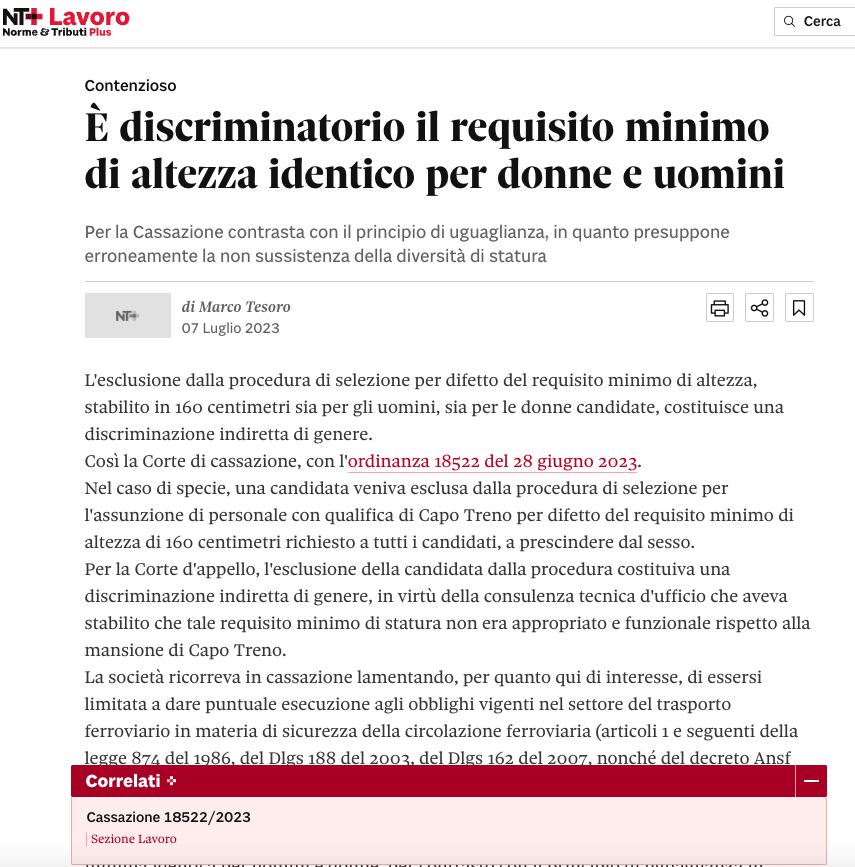Related Posts

Gruppo 24Ore20 October 2022
It is lawful to ban religious signs at the workplace
Pubblicato su Sole24Ore - NT Lavoro - il 20/10/2022 In base alla normativa europea, il datore di lavoro può legittimamente vietare ai dipendenti di manifestare verbalmente, con l'abbigliamento o in...


